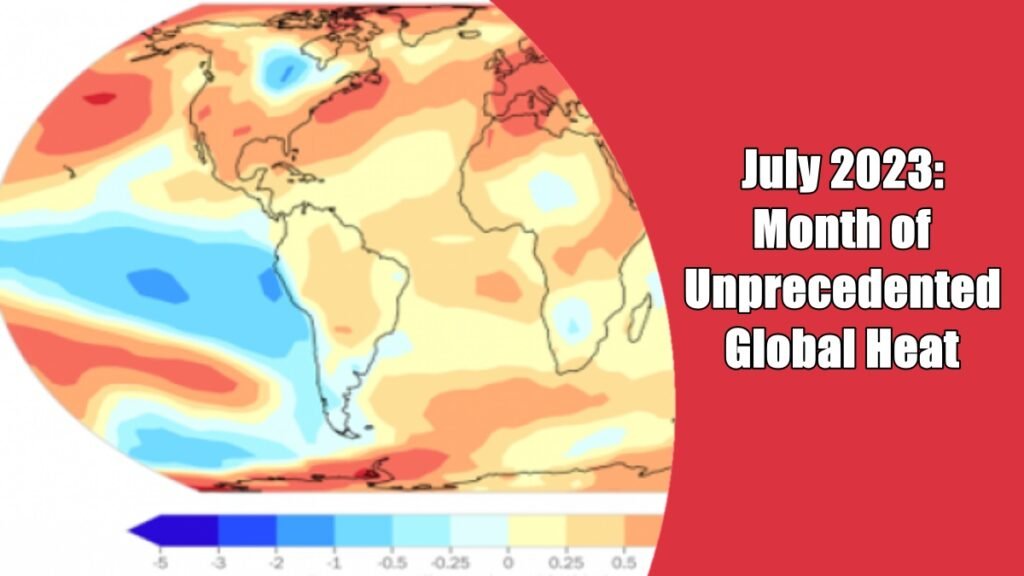
New Delhi: The world experienced an unprecedented heat wave in July 2023, breaking records and causing widespread impacts on people, wildlife, and ecosystems. According to new global data released by NOAA’s National Centers for Environmental Information, July 2023 was the hottest month ever recorded since records began 142 years ago.
The combined land and ocean surface temperature was 1.67 degrees F (0.93 a degree C) above the 20th-century average of 60.4 degrees F (15.8 degrees C), making it the hottest July month ever recorded. It was 0.02 of a degree F (0.01 of a degree C) higher than the previous record set in July 2016, which was then tied in 2019 and 2020.
The Northern Hemisphere also had the highest land-surface temperature ever recorded for July, at an unprecedented 2.77 degrees F (1.54 degrees C) above average, surpassing the previous record set in 2012. Asia had its hottest July on record, besting the previous record set in 2010; Europe had its second-hottest July on record-tying with July 2010 and trailing behind July 2018; and North America, South America, Africa, and Oceania all had a top 10 warmest July.
The extreme heat was driven by multiple factors, including human-caused emissions of greenhouse gases from the burning of fossil fuels and other sources, which trap heat in the atmosphere and warm the planet. The heat also amplified natural variability, such as the El Niño-Southern Oscillation, which affects global weather patterns.
The heat wave had severe consequences for human health, food security, water availability, biodiversity, and climate change. Millions of people suffered from heat stress, dehydration, respiratory problems, and cardiovascular diseases. Some regions faced water shortages, crop failures, wildfires, power outages, and infrastructure damage. Many animals and plants struggled to survive or adapt to the scorching temperatures and drought conditions. The heat also accelerated the melting of glaciers, ice caps, and sea ice, raising sea levels and threatening coastal communities.
Top NASA climatologist Gavin Schmidt said that July 2023 will probably be the world’s hottest month in “hundreds, if not thousands, of years,” based on paleoclimate data. He also warned that the world is likely to see even hotter years ahead due to the continued accumulation of greenhouse gases in the atmosphere.

The record-breaking heat wave is a sobering reminder of the urgent need to reduce greenhouse gas emissions and adapt to the impacts of climate change. The recent report by the Intergovernmental Panel on Climate Change (IPCC) confirmed that human influence is unequivocally causing climate change and that its effects are widespread and rapidly intensifying. The report also highlighted that limiting warming to 1.5 degrees C above pre-industrial levels, the goal of the Paris Agreement would require rapid and deep cuts in emissions in this decade.
As the world faces more extreme heat waves and other climate-related disasters in the future, it is imperative that governments, businesses, civil society, and individuals take action to protect themselves and the planet from further warming.






































